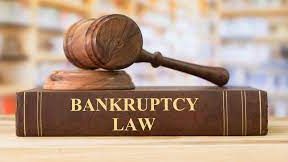Eviction and Bankruptcy
How the Bankruptcy Automatic Stay May Help Tenants

Just because someone owes their landlord rent doesn’t mean they have no recourse. A landlord or any other party cannot just go to where someone lives, throw them out, and change the locks. The landlord must follow the rules and adhere to a formal legal process. Only a court order can compel someone to leave his or her home.
If someone has fallen upon hard times and has not paid the rent, the landlord may take the necessary steps to have them evicted from the premises. Hoping for more time, a desperate tenant may try to file for bankruptcy protection. The bankruptcy automatic stay, the legal injunction that suspends nearly all collection activity and legal proceedings that springs into effect the moment a bankruptcy petition is filed, might give the tenant some time, but it is minimal. The most recent changes to the bankruptcy code make it easier for landlords to move forward with the eviction process.
Historically, when someone filed for bankruptcy during eviction proceedings, the automatic stay would stop the eviction process and buy them time, sometimes months. This is no longer the case. If the landlord has obtained a final judgment for possession against the tenant, before they filed bankruptcy, the automatic stay will generally have no effect on the eviction process. The landlord can usually continue to seek possession of the residence just as if the bankruptcy had not been filed.
If there is not a final judgment for possession, and this includes eviction cases on appeal to the County Court, the automatic stay goes into effect the moment the bankruptcy is filed and all state court proceedings are stopped. The amount of time proceedings are on hold is dependent on the actions or inactions of the landlord, tenant, or other parties. The pause could be a little as two weeks. If the tenant does not file certain documents with the initial petition the bankruptcy could be dismissed in a few days. If the tenant files all the appropriate documents in a chapter 7 bankruptcy, and the landlord takes no action, the tenant’s lease will be considered terminated after SIXTY days and the automatic stay will no longer be a bar to a state court proceeding for possession of the residence.
For a bankruptcy filing to have any effect on an eviction proceeding where the landlord has a final court judgment, the tenant must have the right to cure the default. Texas Law does not have provisions for the right to reinstatement of the tenancy after final judgment for possession. The tenant would have to file a chapter 13 bankruptcy and get the bankruptcy court to approve a payment plan that cures the default. The tenant would have to pay not only the current rent due, but also pay back the delinquent rent over a period of three to five years.
If the tenant has that rare lease or contract that allows the reinstatement of the lease after default then the tenant is required to deposit with the bankruptcy clerk one month of rent immediately upon filing the bankruptcy petition. In addition to paying the rent to the clerk, the tenant is also required to file a certification under penalty of perjury. The tenant must certify that: (1) the eviction judgment permits them to stay in the premises upon satisfaction of the entire judgment amount owed; and (2) the tenant has deposited with the bankruptcy clerk “any rent which would become due during the thirty (30) day period after the filing of the bankruptcy petition”.
When a tenant complies with the aforementioned requirements by tendering the rent to the Bankruptcy Court Clerk and files the certification under penalty of perjury on the day that the bankruptcy petition is filed, the tenant receives thirty days protection of the automatic stay.
Should the tenant be interested in staying beyond the initial thirty-day period, the tenant must pay the entire amount due in the eviction judgment within thirty days of filing their bankruptcy petition. The tenant must file within that thirty days a certification of that payment with the Bankruptcy Court. If the tenant complies with these requirements, then the automatic stay remains in full force and effect until modified by order of the court or it expires pursuant to the bankruptcy code.
The benefits of bankruptcy for the desperate tenant who is delinquent who is facing eviction are limited. Bankruptcy is a cumbersome tool for the tenant seeking just more time in a tenancy. However, for tenants that have judgments against them for past rent that are barriers to obtaining new housing, bankruptcy could be very helpful. Chapter 7 could discharge those debts. Legal actions can also be brought against debt collectors or former landlords that ignore the Bankruptcy and the Court’s Discharge Orders. Tenant/Debtors in bankruptcy may also have remedies against illegal or improper evictions and self-help removal. Always consult a bankruptcy professional when assessing anyone’s benefits and limitations in a possible bankruptcy action.
Victor Hunt, Staff Attorney and Bankruptcy Practice Team Leader, Legal Aid of NorthWest Texas